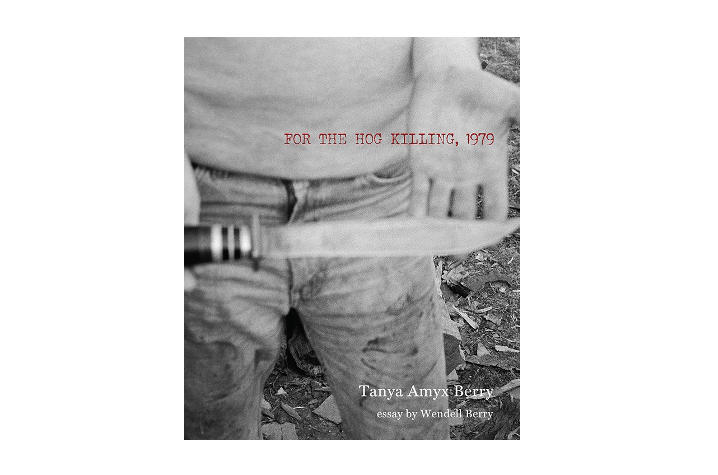Tanya Berry Captures Kentucky Tradition in New UPK Release

LEXINGTON, Ky. (Nov. 5, 2019) — In 1979, Tanya Amyx Berry was given a camera by New Farm magazine to capture images of Kentucky farmers at work. Over two days at the farm of Owen and Loyce Flood in Henry County, she recorded the culmination of a year’s labor raising livestock. These photographs have recently been published for the first time in a new book by University Press of Kentucky.
In Tanya Amyx Berry’s “For the Hog Killing, 1979,” these compelling photographs, accompanied by an essay and poem from Wendell Berry, illustrate the American agrarian practice of neighbors gathering to perform one of the most ceremonious jobs of farm life and the communal effort toward a common wealth.
“The traditional neighborly work of killing a hog and preparing it as food for humans is either a fine art or a shameful mess. It requires knowledge, experience, skill, good sense, and sympathy,” writes Wendell Berry in the essay portion of the book.
Called a “meditation on the profound importance of community” by author Silas House, Berry’s book has also garnered advance praise from actor and “Look & See” co-producer Nick Offerman, who described it as “an imperative and moving portrait.”
This is Berry’s first published book and one of the first releases for Fireside Industries, a University Press of Kentucky imprint in partnership with Hindman Settlement School. Fireside Industries’ mission is to advance the Appalachian literary tradition into the 21st century with new literary works and reissues of classics that contribute importantly to the region.
Tanya Amyx Berry is an artist and agrarian deeply entwined with the Kentucky community, human and natural, surrounding the hillside farm she shares with her husband, Wendell Berry.
Editor Ben Aguilar, grandson-in-law to Tanya and Wendell Berry, is a multimedia specialist with a focus on agrarian and landscape photography. His photographs have appeared in Rural Heritage magazine, Garden and Gun and the photo collection Reciprocal Failure.
Tanya Amyx Berry is slated to appear at this year’s Kentucky Book Festival, presented by Kentucky Humanities, which runs from Nov. 10 to Nov. 16. Her photographs are on display in Lexington at the Pam Miller Downtown Arts Center until Nov. 9.
The University Press of Kentucky is the scholarly publisher for the Commonwealth of Kentucky, representing a consortium that includes all of the state universities, five private colleges and two historical societies. The press’ editorial program focuses on the humanities and the social sciences. Offices for the administrative, editorial, production and marketing departments of the press are found at the University of Kentucky, which provides financial support toward the operating expenses of the publishing operation.
As the state’s flagship, land-grant institution, the University of Kentucky exists to advance the Commonwealth. We do that by preparing the next generation of leaders — placing students at the heart of everything we do — and transforming the lives of Kentuckians through education, research and creative work, service and health care. We pride ourselves on being a catalyst for breakthroughs and a force for healing, a place where ingenuity unfolds. It's all made possible by our people — visionaries, disruptors and pioneers — who make up 200 academic programs, a $476.5 million research and development enterprise and a world-class medical center, all on one campus.




